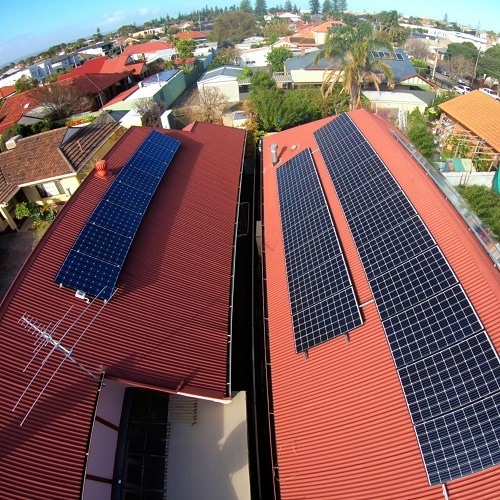The renewable energy sector is challenged with a dilemma: How will Australia discard the 80 million solar panels in an environmentally friendly manner when they reach the end of their useful life?

Image Credit: University of South Australia
One of the main reasons why people are fixing solar photovoltaic (PV) panels in large numbers is to help the environment, but the industry is now struggling with the waste produced by 100,000 tons of panels due to be disassembled in Australia beginning in 2035.
A recent study conducted at the University of South Australia has put forth a comprehensive product stewardship scheme for solar panels, which the Federal Government favored several years ago.
According to UniSA researcher Professor Peter Majewski, incentives are required for producers to construct solar panels that can be more easily recycled if they are destroyed or out of warranty. The research was published in the journal AIMS Energy.
Australia has one of the highest uptakes of solar panels in the world, which is outstanding, but little thought has been given to the significant volume of panels ending up in landfill 20 years down the track when they need to be replaced. There are some simple recycling steps that can be taken to reduce the waste volume, including removing the panels’ frames, glass covers, and solar connectors before they are disposed of.
Peter Majewski, Professor, University of South Australia
Professor Majewski notes, “Landfill bans are already in place in Victoria, following the lead of some European countries, encouraging existing installers to start thinking about recyclable materials when making the panels.”
Professor Majewski claims landfill bans are a useful tool, but they must be accompanied by legislation that guarantees waste is not simply shifted to other locations with less stringent regulations.
Serial numbers that can check the history of solar panels could also be used to track recycling and guarantee that they are discarded in an environmentally friendly manner.
Several European nations have legislation in place for electric car manufacturers to ensure they are using materials that allow 85% of the car to be recycled at the end of their life. Something similar could be legislated for solar panels.
Peter Majewski, Professor, University of South Australia
When weatherproof polymers used in solar panels are incinerated, they emit toxic hydro-fluorite gas. Exposure to the gas can cause severe irritability and burning of the eyes, as well as headaches, nausea, and pulmonary edema in severe cases, sometimes resulting in permanent damage.
Silicon, the second most prevalent material on Earth after oxygen and the most common conductor in use in computer chips, is another primary material used in solar cells.
The demand for silicon is huge, so it’s important it is recycled to reduce its environmental footprint. About three billion solar panels are installed worldwide, containing about 1.8 million tons of high-grade silicon, the current value of which is USD 7.2 billion. Considering this, recycling of solar PV panels has the potential to be commercially viable.
Peter Majewski, Professor, University of South Australia
Prof. Majewski believes that reusing solar panels that are still functional could yield a second-hand economy.
Solar panel re-use offers a variety of social and environmental benefits, but consumers will need guarantees that second-hand panels will work properly and provide a minimum capacity in watts.
Peter Majewski, Professor, University of South Australia
Prof. Majewski believes that any end-of-life legislation must address both existing and new panels, as well as support the development of a second-hand economy.
A levy on the panels could also be intended to help finance an end-of-life scheme.
Journal Reference:
Majewski, P., et al. (2023). Product stewardship considerations for solar photovoltaic panels. AIMS Energy. doi.org/10.3934/energy.2023008.